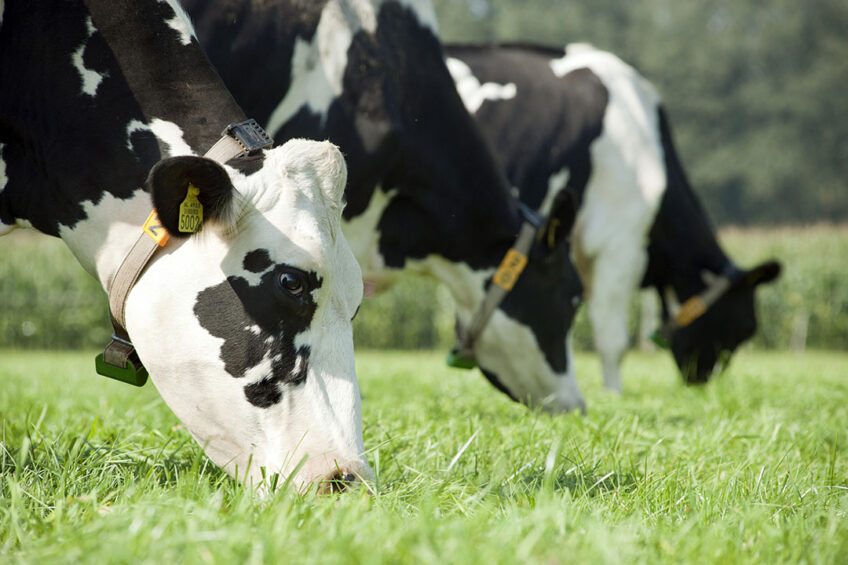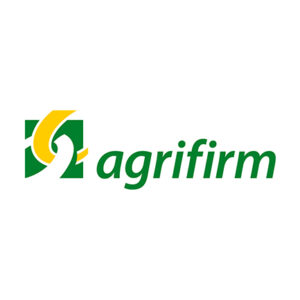Mervit Buffer supports dairy athletes in stressful periods

Low milk prices and all kind of regulations steer dairy farmers to produce as much milk as efficiently as possible. However, obtaining high milk production without causing digestive disorders is not that easy to achieve.
Special attention should be given to high-performance animals, especially in early lactation, and animals suffering from heat stress. Nuscience developed Mervit Buffer to tackle these problems.

Ruminal and hindgut acidosis
Feedstuffs given to dairy cows are mainly fermented by micro-organisms in the rumen. This process yields volatile fatty acids (VFA), such as acetic, propionic and butyric acid, which serve as an important energy source for the animals. Ruminants also need sufficient dietary fibre to maintain a good ruminal fermentation environment. However, to obtain high milk yields, cows are often being fed an energy-rich diet, putting a lot of pressure on this balanced ruminal system. This results in a shift in VFA profile towards more propionic acid and a general increase in total VFA produced. In the liver, propionic acid acts as the main substrate for production of glucose, which is subsequently converted to lactose in the mammary gland and directly determines milk yield levels (Figure 1).
Figure 1 – Energy-rich concentrates are needed to increase milk yields, but digestive disorders such as rumen and hindgut acidosis should be prevented to achieve this.
However, the capacity of the rumen papillae to absorb these VFA is limited, resulting in a pH drop at rumen level. This also creates the ideal settings for lactic acid bacteria to grow, resulting in an even further pH drop. When the ruminal pH remains too long below a threshold of 5.8, digestive disorders such as (subacute) ruminal acidosis occur, having a negative impact on milk production. Besides this, an increased concentrate intake raises the risk of an augmented starch delivery to the hindgut, where the same process might cause hindgut acidosis.
Endotoxins and leaky gut
An increase in rumen fermentation in high-performance animals is often accompanied by problems caused by lipopolysaccharides (LPS). LPS are components of the outer membrane of gram-negative bacteria, which can be shed during bacterial growth. They are referred to as endotoxins, as they are toxic and may provoke an immune response in the host once they enter the interior circulation. Heat stress, reduced feed intake, low rumen pH or transition period problems increase the risk of damage to the gastro-intestinal lining. At a Cattle Symposium of Nuscience in Belgium, prof. Lance Baumgard of Iowa State University talked about what is often referred to as the Leaky Gut Syndrome: “A leaky gut is probably the common denominator for many metabolic problems and suboptimal production, especially in periods of heat stress. An activated immune system because of LPS intrusion consumes an enormous amount of glucose (easily more than 1kg per day), which could otherwise be directed to the production of milk.” (Figure 2)
Figure 2 – An activated immune system by lipopolysaccharides (LPS) intrusion consumes many glucose under stressful ‘leaky gut’ situations, which otherwise could be directed to the production of milk.
Mervit Buffer to the rescue
Nuscience developed Mervit Buffer to give support during the most challenging periods. Single molecules such as sodium bicarbonate only buffer for a limited amount of time after ingestion. Therefore, an optimal mix of specific components was selected to maintain safe ruminal pH levels throughout the whole day. In addition, Mervit Buffer steers the ruminal population to limit lactic acid production. Polyphenols in Mervit Buffer work as natural anti-oxidants to maintain a strong ruminal and intestinal epithelium. Also by supporting tight junction barrier proteins Mervit Buffer is able to alleviate a heat stress induced leaky gut situation.
Author: Frederik Gadeyne, Product Developer Cattle
Join 13,000+ subscribers
Subscribe to our newsletter to stay updated about all the need-to-know content in the dairy sector, two times a week.




